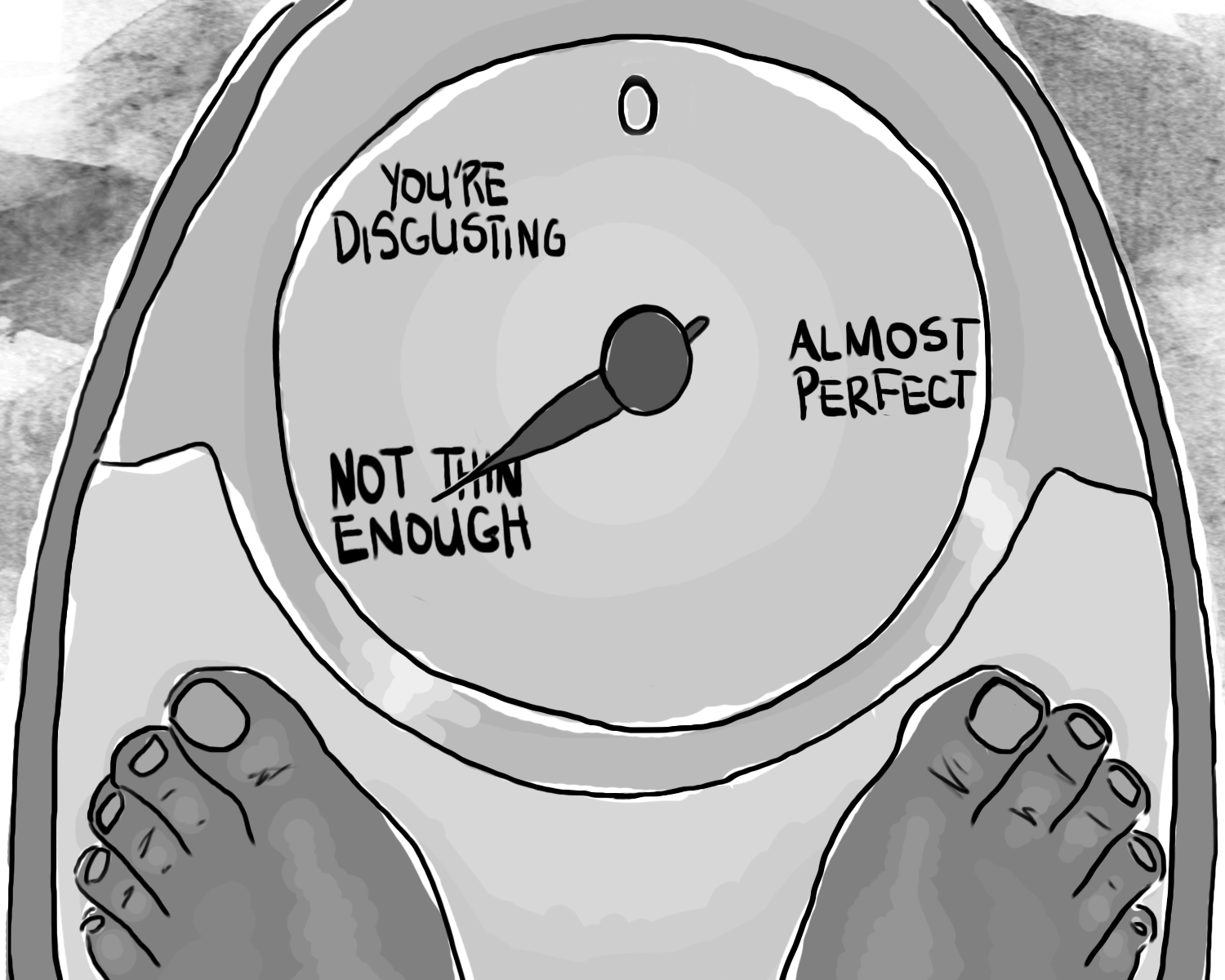*Content warning: Post contains content regarding eating disorders and body dysmorphia.
Living as a university student means living a chaotic life where we are often struggling to get everything done. Balancing school, work, adulting finances, and a bunch of different all thanks to our morning coffee is brutal. But in this constant race of getting things done, our well-being often takes a back seat. Being new at university adds another layer of confusion to this whole equation. Despite being in my third year I am still adjusting to this challenge every day. I tend to not eat/avoid eating as a punishment for not getting things done. But wait this does not sound like your typical eating disorder story. Eating disorders can occur due to different reasons. Yes, they can be anorexia or bulimia but they can also look different from them. Some other eating disorders are binge eating disorder, avoidant restrictive food intake disorder, other specified feeding and eating disorders, pica, and rumination disorder.
An eating disorder is a disturbance in eating behaviors and associated distressing thoughts and emotions.
Studies have shown that eating disorders worsen in residences and there are various reasons for this to occur. The transition to the college itself introduces new changes, challenges, and experiences, and for the student recovering from an eating disorder, there may be new obstacles to navigate through. Apart from that eating in front of people where one feels scrutinized for their food choices makes them feel they are on “display” which also worsens their condition. Research shows that eating disorders are activated at times of stress or when a person’s sense of control is challenged and the first year of university is a perfect example of this situation. Being an international student, when I first stepped into the college cafeteria, all the food choices were foreign to me. I did not like half of the things there and tended to avoid foreign foods. I started surviving on hot sauce and stir fry which was a bad choice. It was my friends and my roommate that made me try new things and helped me be comfortable with the food choices here and also find ones that were similar to the food back home. Recovery with eating disorders can also be very difficult if you have dietary concerns and restrictions.
Being a student at UVic we are registered in the UVSS Health Plan that covers up to 80% of consultations with a dietician that could help navigate these challenges. If you feel that you might be suffering from an eating disorder, you are not alone as 8% to 17% of college students report struggling with an eating disorder. In situations like this, living in a more controlled supportive environment can be a great help. We living at UVic are very lucky to have so many mental health resources at our disposal. If you want to get connected to resources you could start by talking to your Community Leader or meet someone at the UVSS Peer Support Centre. You could also make an appointment at the Student Wellness Centre and book a consultation with a mental health practitioner, a nurse, or a counselor.
University is an opportunity to meet people and surrounding yourself with people that support your growth can also be crucial in recovery. During recovery, there will be triggers and relapses and that is okay. Recovery is never a linear path and traveling in circles is alright. To prevent triggers or to lessen their effect, it can be beneficial to have a plan in place. Decide what you can do or who you can talk to if you are feeling triggered. For example, if your dorm room has free pizza after dinner one day, you might feel the desire to binge, which can be triggering. In this case, you could have a plan in place to avoid bingeing and to lessen negative thoughts. You could hang out at a friend’s dorm, you could eat the pizza in a way that works with your meal plan, or you could eat a slice with friends who understand what you are experiencing. In the end, I would like you all to know that you are not alone and it’s not your fault (sometimes it’s the situations around you that act as a trigger).




The views expressed in this blog are my own, and do not necessarily reflect the policies or views of the University of Victoria. I monitor posts and comments to ensure all content complies with the University of Victoria Guidelines on Blogging.